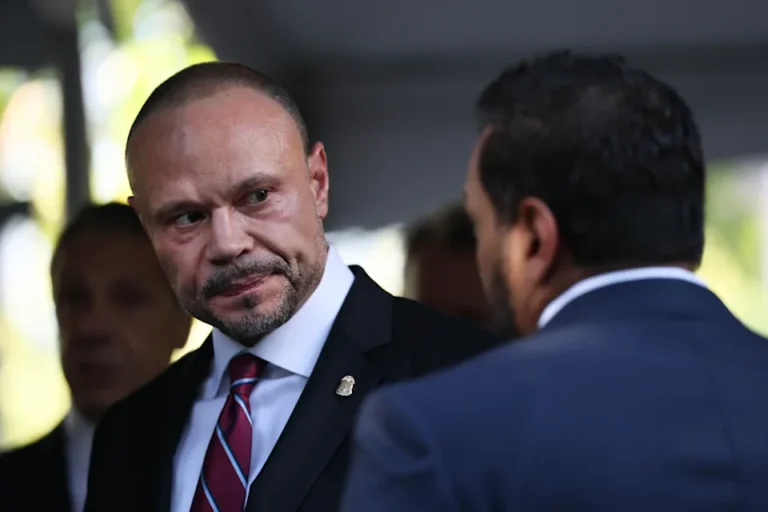
Noah Lee Ritter, once known as Stella Ritter, is a name that has sparked significant interest and discussion, particularly within the LGBTQ+ community and Hollywood circles. As the child of the late John Ritter, a beloved actor, and Amy Yasbeck, a renowned actress, Noah’s life was always destined to attract public attention. However, it is Noah’s courageous transition from female to male that has truly defined his journey and inspired many.
Transitioning is a profound personal journey that involves emotional, physical, and social changes. Noah’s story is not just about the physical transformation but also about embracing his true self despite the challenges.
This blog delves into Noah’s life, exploring his early years, family background, career, and the significant steps he took to become the person he is today.
Early Life and Family Background
Noah Lee Ritter was born on September 11, 1998, in Burbank, California, to John Ritter and Amy Yasbeck. Growing up in a family deeply rooted in the entertainment industry, Noah was surrounded by the glitz and glamour of Hollywood from an early age. His father, John Ritter, was a beloved actor known for his role in the classic TV show “Three’s Company,” while his mother, Amy Yasbeck, is recognized for her performances in films like “Problem Child.”
Noah has three half-siblings from his father’s first marriage to actress Nancy Morgan: Jason, Tyler, and Carly Ritter. All three siblings have pursued careers in the entertainment industry, with Jason Ritter being particularly successful in both film and television. Despite their parents’ divorce, the Ritter siblings have maintained a close-knit relationship, supporting each other through various personal and professional endeavors.
Noah’s Early Years
As a child, Noah was known as Stella Ritter. From a young age, Stella was often seen accompanying her parents to red-carpet events and Hollywood gatherings. She was described as a bright and talented child, showing early interest in the arts, particularly music and acting. However, it was clear that Stella was navigating complex feelings about her gender identity even in these early years.
Noah’s childhood, while privileged in many ways, was also marked by the public scrutiny that comes with being a celebrity child. Despite this, Noah’s parents tried to provide a normal upbringing, encouraging him to explore his interests and passions.
Career in Entertainment
Following in the footsteps of his famous parents, Noah ventured into the entertainment industry. He made his acting debut in 2007 at the age of nine in the TV movie “This Is My Friend.” Over the next few years, Noah appeared in several other productions, including “Hannah Lost Her Smile” (2013) and “The Namazu” (2012). His early performances showcased his talent and potential, hinting at a promising career in acting.
Despite his budding career, Noah faced personal struggles related to his gender identity. These challenges eventually led him to step back from the limelight to focus on his transition and personal well-being.
The Transition Journey
In September 2016, on his 18th birthday, Stella Ritter publicly announced his decision to transition from female to male, adopting the name Noah Lee Ritter. This announcement was a significant moment not only for Noah but also for the broader conversation around transgender issues in society. Transitioning is a deeply personal process that involves various medical, legal, and social steps. For Noah, this meant undergoing hormone replacement therapy, changing his legal documents, and navigating the complexities of living as a transgender man in the public sphere.
Noah’s transition was supported by his family, particularly his mother, Amy Yasbeck, who has been a vocal advocate for LGBTQ+ rights. His siblings also rallied around him, offering unconditional love and support throughout the process. This familial support was crucial in helping Noah navigate the challenges that come with transitioning, especially under public scrutiny.
Life After Transition

Since transitioning, Noah Lee Ritter has largely stepped back from the public eye, choosing to live a more private life. This decision is understandable, given the intense media attention and societal pressures faced by transgender individuals. While Noah has kept much of his personal life private, it is known that he continues to pursue his passion for music and composition. He has also expressed interest in returning to acting in the future, albeit on his terms.
Noah’s journey has inspired many within the LGBTQ+ community and beyond. His courage to live authentically and openly has provided hope and visibility for transgender individuals, particularly those struggling with their own identities. Noah’s story underscores the importance of acceptance, support, and understanding in the journey toward self-discovery and authenticity.
The Importance of Family Support
One of the most significant aspects of Noah’s transition story is the unwavering support he received from his family. The importance of familial acceptance and support for transgender individuals cannot be overstated. Research has shown that transgender people who receive support from their families are more likely to experience positive mental health outcomes and overall well-being.
For Noah, his family’s acceptance was a cornerstone of his transition journey. His mother’s advocacy and his siblings’ solidarity played crucial roles in helping him navigate the complexities of his gender transition. This support not only helped Noah personally but also set an example for other families on the importance of acceptance and unconditional love.
Public Perception and Media Representation
The media plays a significant role in shaping public perception of transgender individuals. Noah’s story, like many others, has been covered extensively by various media outlets. While some coverage has been positive and supportive, highlighting Noah’s bravery and authenticity, other reports have been less understanding, focusing on sensational aspects of his transition.
Media representation needs to be respectful and accurate, avoiding stereotypes and harmful narratives. Positive media representation can help educate the public, reduce stigma, and promote acceptance of transgender individuals. Noah’s story, when told with respect and empathy, has the potential to inspire and educate, fostering a more inclusive society.
Noah Lee Ritter’s Impact on the LGBTQ+ Community
Noah Lee Ritter’s transition and his decision to live authentically have had a significant impact on the LGBTQ+ community. His story has provided visibility for transgender individuals and highlighted the importance of acceptance and support. By sharing his journey, Noah has helped to break down barriers and challenge misconceptions about transgender people.
Furthermore, Noah’s experience underscores the importance of access to supportive and affirming healthcare for transgender individuals. His journey highlights the need for medical professionals to be knowledgeable and compassionate in providing care for transgender patients. Advocacy for transgender rights and access to healthcare is crucial in ensuring that all individuals can live authentically and healthily.
Conclusion
Noah Lee Ritter’s journey from Stella to Noah is a powerful story of transformation, resilience, and authenticity. As the child of Hollywood stars, Noah’s life was always in the public eye, but it is his courageous decision to transition and live as his true self that has truly defined his legacy. Supported by his loving family, Noah has navigated the challenges of his transition with grace and strength, inspiring many along the way.
Noah’s story highlights the importance of acceptance, support, and understanding in the journey toward self-discovery and authenticity. It underscores the vital role of family support and positive media representation in fostering a more inclusive society. As Noah continues to live his life privately, his journey remains a beacon of hope and inspiration for transgender individuals and their allies worldwide.
By sharing Noah Lee Ritter’s story, we celebrate not only his courage and authenticity but also the broader movement toward acceptance and equality for all individuals, regardless of their gender identity. Noah’s journey is a testament to the power of living authentically and the importance of supporting one another in the pursuit of true self-expression.
See Also: Jaylen Fleer: Ex-Deputy Sheriff Sentenced to 12 Years for Exploiting Teen Girls
FAQs
Who is Noah Lee Ritter?
Noah Lee Ritter, formerly known as Stella Ritter, is the son of late actor John Ritter and actress Amy Yasbeck. Born on September 11, 1998, Noah is known for his transition from female to male and has pursued a career in acting and music.
What led Noah Lee Ritter to transition?
Noah Lee Ritter announced his transition in September 2016, on his 18th birthday. This decision was driven by his desire to live authentically as his true self. He has received strong support from his family throughout his transition journey.
How has Noah’s family supported his transition?
Noah’s family, especially his mother Amy Yasbeck, and his siblings, have been very supportive. Amy has been a vocal advocate for LGBTQ+ rights, and their unwavering support has played a crucial role in Noah’s successful transition.
What is Noah Lee Ritter’s career background?
Noah began his acting career as a child under the name Stella Ritter, appearing in TV movies and short films. Post-transition, he has stepped back from public acting but continues to pursue his passion for music and composition.
How has Noah Lee Ritter’s transition impacted the LGBTQ+ community?
Noah’s transition has provided visibility and inspiration within the LGBTQ+ community. His story underscores the importance of acceptance and support, highlighting the challenges and triumphs of living authentically as a transgender individual.






